Lia-kotik-blog - Lia's Diary




More Posts from Lia-kotik-blog and Others
A compilation of people from a few of the 56 official ethnic groups in China wishing everyone a happy Duanwu (Dragon Boat Festivial) from 2021.
song: 半生雪 - 是七叔呢
English added by me :)

Cherry blossoms and tea plantations, Japan . Photography by afun Agata
best video ever
I don’t know what this is all I know is that I can’t stop thinking about it
Chinese websites 🇨🇳[MASTERPOST]

Last time when I posted the list with my fav websites where you can practice reading in Chinese, so many of you liked it and shared it! I appreciate it so much… and decided to make something extra, add more websites I found useful during Chinese learning process.
~~~~~~~~~~~~~~~~ ♡ ~~~~~~~~~~~~~~~~
Reading in Chinese
♡ Mandarin Bean (news in Chinese, HSK 1-6)
♡ Chinese Reading Practice (stories, essays, legends, chengyu stories)
♡ The Chairman’s Bao (news in Chinese, HSK 1-6)
♡ HSK Reading (and more articles!)
♡ My Chinese Reading (stories, scientific, business/politics, history etc)
♡ BBC News in Chinese (for more advanced learners)
♡ + Baidu Baike (something like Chinese wikipedia)
Grammar and HSK websites
♡ Chinese Grammar Wiki (saved my as… I mean my life MANY times)
♡ HSK Online (perfect place to test yourself, learn new words and gain a lot of knowledge how HSK looks like)
Online courses
♡ Courses on edX
♡ Courses on Coursera (recommend these courses created by Peking University)
Online Dictionaries
♡ MDBG ♡ Yellow Bridge
♡ Pleco (APP) ♡ Bohan (for 🇵🇱 ppl)
YouTubers
Teachers:
♡ ShuoShuo Chinese
♡ Mandarin Corner
♡ Chinese Zero To Hero
♡ Everyday Chinese
♡ Learning Chinese through Stories
♡ Daily Zhongwen
♡ HSK Test Preparation and Practice
♡ SyS Mandarin
Chinese vloggers
♡ Elena Lin
♡ Nuria Ma
♡ Liziqi
♡ WenWei
Foreigners in/about China
♡ Blondie in China
♡ Weronika Truszczyńska (Polish vlogger, her shoots are incredible; there are English subs)
♡ Ychina
Online Bookstores
♡ Purple Culture
♡ Sinolingua
♡ ChinaBooks
♡ Mandarin Companion
Where you can watch Chinese drama/movies/cartoons?
♡ YouTube (try to type the Chinese title, high possibilities it will show up! fe. THEY have quite a lot of dramas ;>
♡ iQIYi
♡ Netflix -> Taiwan on Netflix + Movies from Mainland China on Netflix
♡ Little Fox Chinese
~~~~~~~~~~~~~~~~ ♡ ~~~~~~~~~~~~~~~~
♡ If you liked this post please like, share! ♡
You can also: ♡ follow me on Instagram
♡ and subscribe my YouTube channel
Some language learning exercises and tips
These are some of the activities I do. Maybe you'll find them helpful:
Write a mock dating profile for yourself. Describe yourself, list your hobbies and interests, hopes for the future, likes and dislikes, and the qualities you're looking for in a partner. Enjoyed it? Write one for your favourite character/OC.
Try to find a Youtuber who plays your favourite game and does commentary in your target language. I watch this guy a lot.
Describe locations in your favourite books, games, movies, TV shows etc. I like to wander the Hitman maps and write about the different areas, NPCs, and situations I observe.
Write a mock interview with your character/influential figure of choice.
Choose a fairy tale and write your interpretation of it in your target language.
When you're cooking, say what you're doing out loud as if you were talking to a studio audience.
Imagine your mutuals are coming to your city for a visit. Write up a lil guidebook for them describing places of interest. Write an itinerary to practice using the future tense and "first", "then", "after that", etc statements.
A chalk marker might be useful to you. I write important words and phrases that I'm having trouble remembering on my bathroom mirror. I just wipe them away with a damp cloth later.
Review books, albums, movies etc in your target language. Either write down your review or record yourself talking about it.
I always wondered why the Western Zodiac and the Chinese Zodiac were both called zodiacs if one was associated w astronomy and the other w time in general. Like what defines a zodiac that the word is only used to describe these two things? Looking up the word "zodiac" in the dictionary didnt help bc it only talked about the western one.
Well, I decided to look up the etymology for zodiac and it turns out it comes from the Greek for "circle of little animals." I love humans
Linguistics Terms in Chinese
*Common terms found in textbooks, on tests, etc. that no one has ever taught me explicitly; will update periodically through reblogs-please share if you know other ones!! We can use these words to talk about our study, ask for help, or better understand test questions and practice sets.

语法 -grammar
生词 - vocabulary
口语 -speaking
写字 -writing
阅读 -reading
跨文化交际 - cross-cultural communication
汉字 - characters
拼音 - pinyin
偏胖 - character radicals (e.g. 口袋的口)
名词 -noun
动词 -verb
副词 - adverb
状语 -adverb phrase
量词 -measure word
连词 -conjunction
句子 -sentence
主语 - subject of a sentence
分句 - sentence clause
注释 -explanatory notes
不同点 -differences
对话 - dialogue
专有名词 -Proper nouns
词义 -meaning of a word, definition
形合 -a linguistics term that literally means “shape focused;” it refers to the way that languages like English focus more heavily on structures like grammar to be intelligible; in contrast to the below term, 意合
意合 -a linguistics term that literally means “meaning focused;” it refers to languages like Chinese that focus more heavily on meaning, so they can rely on repetition of certain words or phrases within a sentence or utterance without sounding redundant; in contrast to the above term, 形合
练习 - practice
复习-review
预习 - preview
考试 -test
做作业 - do homework
例如 - example
判断对错。 - judge true or false.
题 - question (usually 第 + # + 题)
请选出真确回答。 - choose the correct answer.
选词填空。-fill in the blanks.
排列顺序。- arrange / put in order of sequence.
部分 -part (usually 第 + # + 部分)
完成句子 - finish the sentences.
shén shòu神兽, mythological animals in chinese culture for references and inspiration part Ⅰ: nine offsprings of loong🐲🐉
In addition to the well-known Loong🐉 (dragon but not western dragon)and the Fenghuang(Phoenix), there are countless other divine beasts(or beasts of spiritualization) in Chinese mythology, their system is huge and complex, from various ancient texts and folklore, such as “Loong gives birth to nine offsprings 龙生九子”, meaning the nine descendants of Loong and they are born from the mating of Loong and other divine beasts, with different forms, and their images can often be seen in Chinese folk culture.

1. 囚牛[qiú niú]
Qiuniu, the eldest offspring of the dragon, is said to have loved music all his life. Legend has it that qiuniu was the most docile of all the dragon’s sons, and that it was not a killer or a fighter, but rather a musician. It had a head like a dragon and a body like a snake, and its hearing was so good that it could distinguish the sounds and the pitch of everything. It often crouches on ancient Chinese stringed instruments to enjoy the music of the plucked strings, which is why its statue was carved on them. ↓



2. 睚眦[yá zì]
Yazi, the second offspring, has the head of a dragon and the body of a jackal, is fierce, courageous, bloodthirsty and murderous, and always has a sword in its mouth and a furious stare, often engraved on the handle of a sword as a symbol of guardianship and strength. The original meaning of yazi is to stare in anger, a symbol of blood and vengeance, and so yazi became the embodiment of the destruction of all evil. ↓



3. 嘲风[cháo fēng]
Chaofeng is the third in line and enjoys adventure and views from high places.
In Chinese folklore, chaofeng symbolises good fortune, beauty and majesty, and also serves to deter demons, remove calamities and ward off evil spirits. It adds a layer of mystery to a towering hall and can act as a deterrent to evil and avoid disaster. ↓
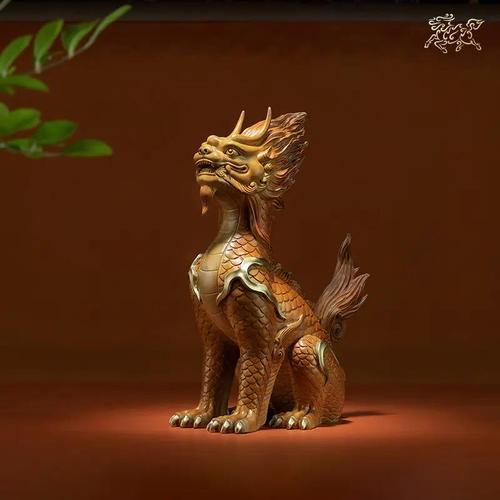

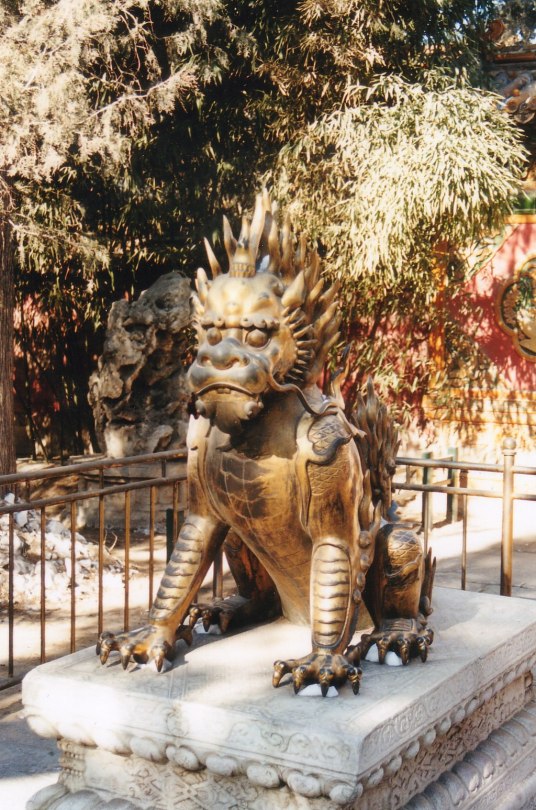

4. 蒲牢[pú láo]
Pulao loves sound and a good roar, and is often carved on the great bells of Chinese temples. Legend has it that the pulao lived by the sea and was terrified of whales. When the whale attacked, he was so frightened that he roared loudly. In response to its ‘fondness for roaring’, the pulao was cast on the bell of the temple and the wooden pestle used to strike the bell was carved in the shape of the whale. When the bell is struck, the whale strikes the pulao one after the other, so that the sound of the bell can be heard from very far. ↓

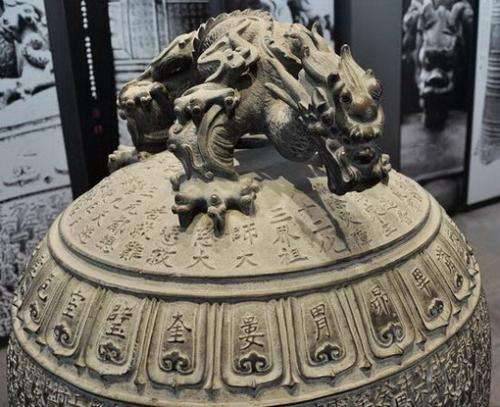


5. 狻猊 [suān ní]
Resembling a lion, suanni is a quiet and immobile creature that sits well and loves fireworks, and is often used to decorate the foot of incense burners.
There are three broad uses for the suanni. One is as a mount for a Buddha or Bodhisattva, a guardian animal. Legend has it that the suanni liked to sit quiet for long time, so when the Buddha saw that it had patience, he took it as a mount. Secondly, the suanni was regarded as a auspicious beast to ward off evil and was introduced into people’s practical lives, and was gradually used extensively in architectural decoration, folklore festivals and bronze mirror decoration. Thirdly, it was used to ward off evil spirits, to guard tombs, and to guard palace gates and mansions. In view of the supreme power of the Buddhist kung fu ‘lion’s roar’, suanni stone sculptures were used in the Sui and Tang dynasties to guard tombs to ward off evil spirits or to symbolise authority. ↓

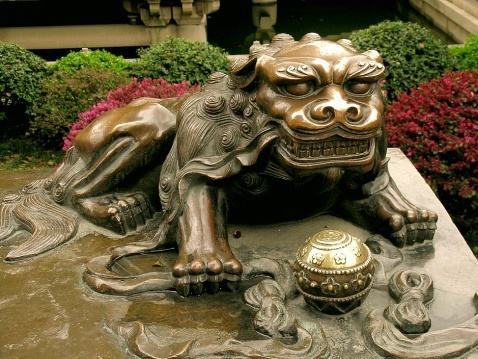


6. 赑屃[bì xì] Bixi is one of the nine sons of the dragon in ancient Han mythology, also known as baxia霸下 and ranked sixth. It has a tortoise-like appearance and likes to carry heavy loads on its back, often carrying stone monuments for years. Bixi is often used as a base for stone monuments, and is of great cultural importance. Its symbolism is based on 'longevity and good fortune’ and has connotations of status, totem worship and witchcraft. ↓


7. 狴犴bì àn, also known as Charter, is loong’s seventh offspring. It looks like a tiger, very powerful, and enjoy living a litigious life. The tiger head decoration on the prison door is Bian.
Ancient scripture《龙经》notes: “Bian likes to argue, and it has a name called charter.” It is said that Bian is not only loyal to justice, but also able to distinguish right from wrong and judge justly. In addition to its majestic appearance, bian is not only decorated on the prison door, but also lying on both sides of the ancient government hall. Whenever the magistrate sits in the hall, Bian’s image is on the top of the title board and the silence board. Bian looks around fiercely to maintain the solemn integrity of the court.
Bian is both the symbol of prison and the patron saint of ordinary people. In 上虞区上浦镇冯浦村, shaoxing, zhejiang province, there are the cultural custom of 'Bian Loong dance狴犴龙舞’, which had local characteristics and are deeply welcomed by the local people. ↓


8. 负屃[fù xì ]
The fuxi is the eighth offspring born to the dragon in ancient Chinese mythology. Its body resembles that of a dragon and it has a gentle disposition, preferring to coil around the head of a stone monument. It is a lover of literature and calligraphy and likes to coil around the tops of stone monuments with beautiful inscriptions. It is usually seen together with the bixi, which carries the monument, and the fuxi coils around the top of the monument. ↓


9. 螭吻 or 鸱吻 [chī wěn]
It is generally considered to be the ninth offspring of the dragon. It likes to swallow things and is said to be able to devour everything, as seen on the head of the beast on the roof of a Chinese palace. Chiwen likes to look around and is carved to look like it is swallowing the roof with its mouth open, and often has a sword stuck in its back. Legend has it that chiwen can spout waves and send down heavy rain, ward off fires and drive away spirits and demons. So Chinese folk asked it to watch over the horizontal ridges of houses. It likes to climb high and look down, so it is regarded as an ornament in folklore to pray for rain and to ward off fire. Chiwen is the child of a dragon and a fish, so its head is a dragon’s head but its body is in the shape of a fish. ↓



summary and some related patterns↓






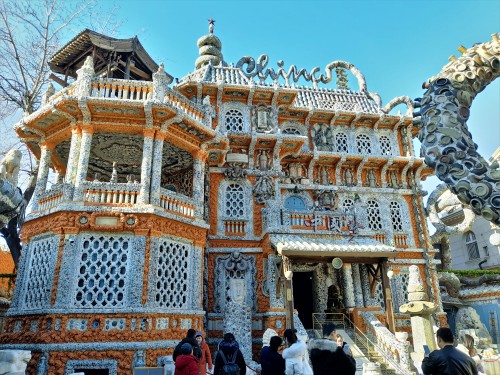
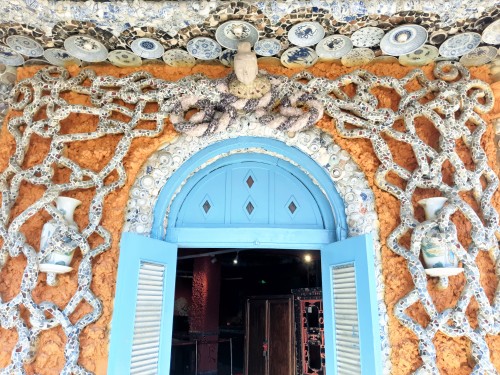

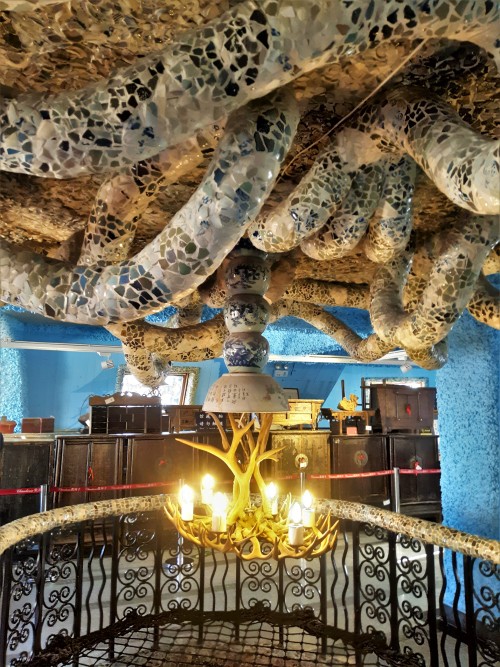
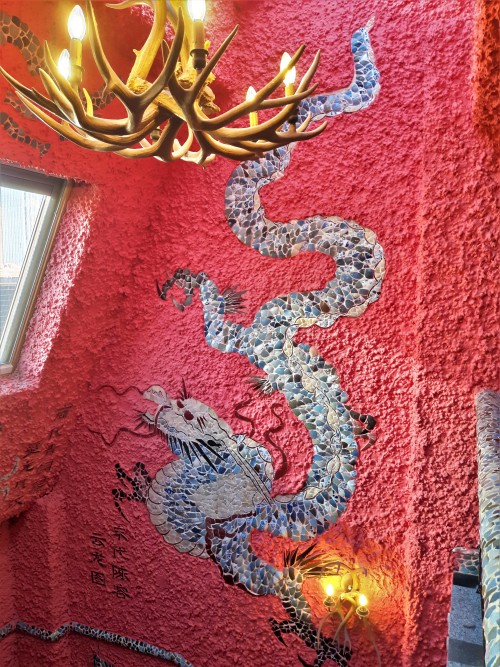
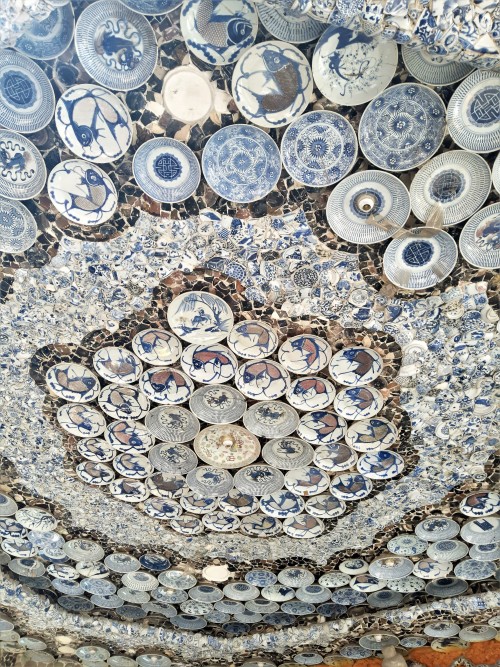
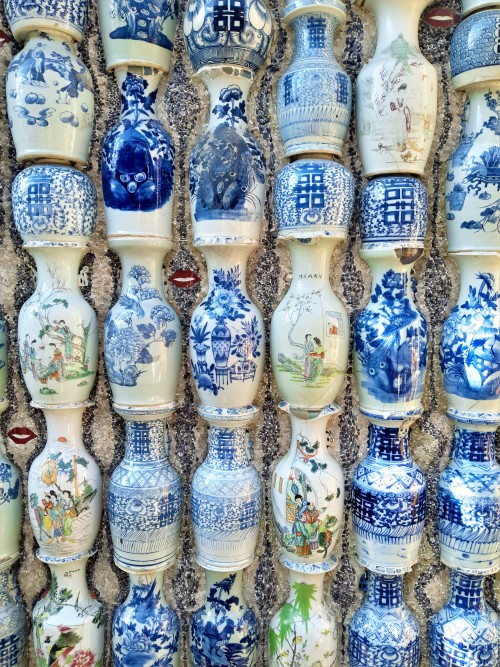
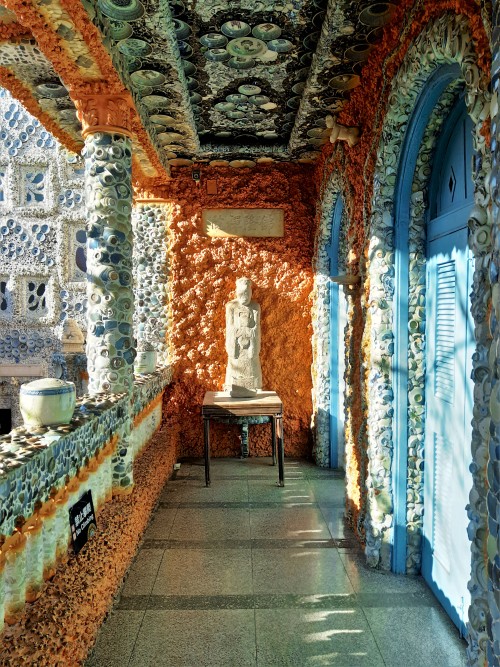
The Porcelain House in Tianjin






Whisper of the Heart 耳をすませば 1995 | dir. Yoshifumi Kondō
-
 jules-vaughn reblogged this · 4 months ago
jules-vaughn reblogged this · 4 months ago -
 jules-vaughn liked this · 4 months ago
jules-vaughn liked this · 4 months ago -
 konvoluted liked this · 5 months ago
konvoluted liked this · 5 months ago -
 sophiaurora reblogged this · 5 months ago
sophiaurora reblogged this · 5 months ago -
 percyvelleknight liked this · 5 months ago
percyvelleknight liked this · 5 months ago -
 fkhufu reblogged this · 5 months ago
fkhufu reblogged this · 5 months ago -
 fkhufu liked this · 5 months ago
fkhufu liked this · 5 months ago -
 stromuprisahat liked this · 5 months ago
stromuprisahat liked this · 5 months ago -
 abnidraws liked this · 5 months ago
abnidraws liked this · 5 months ago -
 stheresya reblogged this · 5 months ago
stheresya reblogged this · 5 months ago -
 lucky13cat reblogged this · 7 months ago
lucky13cat reblogged this · 7 months ago -
 browinning7 reblogged this · 7 months ago
browinning7 reblogged this · 7 months ago -
 browinning7 liked this · 7 months ago
browinning7 liked this · 7 months ago -
 abedtimestory liked this · 8 months ago
abedtimestory liked this · 8 months ago -
 loveroma reblogged this · 9 months ago
loveroma reblogged this · 9 months ago -
 xoxotifia liked this · 10 months ago
xoxotifia liked this · 10 months ago -
 sunflover0in0abbys liked this · 10 months ago
sunflover0in0abbys liked this · 10 months ago -
 angels-all-sin reblogged this · 10 months ago
angels-all-sin reblogged this · 10 months ago -
 angels-all-sin liked this · 10 months ago
angels-all-sin liked this · 10 months ago -
 opinionatedhumanbeing liked this · 10 months ago
opinionatedhumanbeing liked this · 10 months ago -
 bookworm-of-camelot reblogged this · 10 months ago
bookworm-of-camelot reblogged this · 10 months ago -
 littleeyesofpallas liked this · 11 months ago
littleeyesofpallas liked this · 11 months ago -
 igokia reblogged this · 11 months ago
igokia reblogged this · 11 months ago -
 thawragiya liked this · 1 year ago
thawragiya liked this · 1 year ago -
 thesleepyballot reblogged this · 1 year ago
thesleepyballot reblogged this · 1 year ago -
 donthold-yourbreath reblogged this · 1 year ago
donthold-yourbreath reblogged this · 1 year ago -
 donthold-yourbreath liked this · 1 year ago
donthold-yourbreath liked this · 1 year ago -
 kinanina reblogged this · 1 year ago
kinanina reblogged this · 1 year ago -
 dopefishcollection liked this · 1 year ago
dopefishcollection liked this · 1 year ago -
 peachyysara liked this · 1 year ago
peachyysara liked this · 1 year ago -
 scrumptiousmongersuitcaseturtle liked this · 1 year ago
scrumptiousmongersuitcaseturtle liked this · 1 year ago -
 peachblossomdream reblogged this · 1 year ago
peachblossomdream reblogged this · 1 year ago -
 peachblossomdream liked this · 1 year ago
peachblossomdream liked this · 1 year ago -
 silence-lies reblogged this · 1 year ago
silence-lies reblogged this · 1 year ago -
 plummanity liked this · 1 year ago
plummanity liked this · 1 year ago -
 pearlofmydreams liked this · 1 year ago
pearlofmydreams liked this · 1 year ago -
 logicalbookthief liked this · 1 year ago
logicalbookthief liked this · 1 year ago -
 what-a-con liked this · 1 year ago
what-a-con liked this · 1 year ago -
 onetobeamup reblogged this · 1 year ago
onetobeamup reblogged this · 1 year ago -
 rebelwithoutabroom reblogged this · 1 year ago
rebelwithoutabroom reblogged this · 1 year ago -
 trustmy-rage reblogged this · 1 year ago
trustmy-rage reblogged this · 1 year ago -
 dying-suffering-french-stalkers reblogged this · 1 year ago
dying-suffering-french-stalkers reblogged this · 1 year ago -
 heartshapedtrap liked this · 1 year ago
heartshapedtrap liked this · 1 year ago -
 dirtofsociety reblogged this · 1 year ago
dirtofsociety reblogged this · 1 year ago -
 waitingroomphoebebridgers reblogged this · 1 year ago
waitingroomphoebebridgers reblogged this · 1 year ago -
 myimaginarykingdomoverhere liked this · 1 year ago
myimaginarykingdomoverhere liked this · 1 year ago -
 underwaterdreamy reblogged this · 1 year ago
underwaterdreamy reblogged this · 1 year ago